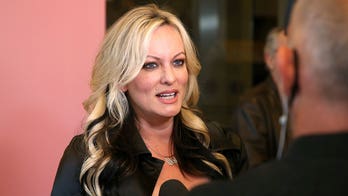Despite giving an unforgettable performance in "My Fair Lady," Audrey Hepburn was snubbed by the Academy Awards due to a behind-the-scenes controversy surrounding her casting. This article explores the alleged "punishment" faced by Hepburn and the enduring impact it has had on her legacy.

In the golden year of 1964, as the world celebrated the cinematic masterpiece "My Fair Lady," a dark cloud hung over Audrey Hepburn. Despite her captivating performance as Eliza Doolittle, she was inexplicably omitted from the Academy Awards nominations for Best Actress. This glaring omission was not an oversight but rather the culmination of a brewing controversy that had plagued the casting of the beloved musical.

When the film adaptation was announced, many assumed that Julie Andrews, who had triumphed in the stage production alongside Rex Harrison, would reprise her role on screen. However, a bombshell announcement revealed that Hepburn had been cast as Eliza, sending shockwaves through the industry.
Hepburn, caught in the crossfire between powerful studio executives, maintained her innocence, stating that she only accepted the role when it became clear that Andrews would not be involved. However, Jack Warner, the studio's iron-fisted boss, had decided from the outset that Andrews, despite her undeniable talent, was not a bankable star for the film's massive budget.

As resentment simmered among stage and film critics, they eagerly seized upon a leaked revelation: Marni Nixon, a renowned ghost singer, had provided the majority of Hepburn's vocals in "My Fair Lady." This disclosure fueled accusations of deception and further fueled the controversy.
Unbeknownst to critics at the time, Hepburn had been assured that her own voice would be used in the film. While she may not have possessed the vocal prowess of a trained singer, her performance in "Moon River" from "Breakfast at Tiffany's" demonstrated her ability to carry a tune. Moreover, the film's plot did not demand exceptional singing abilities, as Harrison humorously proved by "talking" his way through his musical numbers.

Tragically, Warner and the studio had no intention of using Hepburn's voice. Andre Previn, the film's musical director, later exposed the cruel deception, revealing that they had fed Hepburn false promises to secure her participation.
The manufactured stigma surrounding Hepburn's dubbed singing voice became a weapon of "punishment" in the hands of her Hollywood peers. With deliberate pettiness, they awarded the Best Actress Oscar to Julie Andrews for her performance in "Mary Poppins," which coincidentally premiered alongside "My Fair Lady" in 1964.

Decades later, the controversy's radioactive fallout still lingers. In 2010, Emma Thompson, while discussing her proposed remake of "My Fair Lady," expressed her disdain for the original film, claiming that Hepburn could neither sing nor act. Such a harsh assessment, uttered without regard for Hepburn's posthumous reputation, betrayed a lack of depth and understanding.
In stark contrast to Thompson's sniping, Julie Andrews herself displayed remarkable grace and empathy. Before receiving her Best Actress award for "Mary Poppins," she acknowledged the wrong done to Hepburn, stating her belief that she deserved a nomination. On stage, Andrews wittily addressed the controversy, thanking Jack Warner for "making all this possible."

Despite the manipulation and injustice she endured, Hepburn delivered an unforgettable performance in "My Fair Lady." To rectify the historical record, it would be fitting to release the film with her original vocal tracks, as she intended. This act would not only vindicate Hepburn's legacy but also serve as a testament to the true artistry that lies beyond manufactured controversies.










